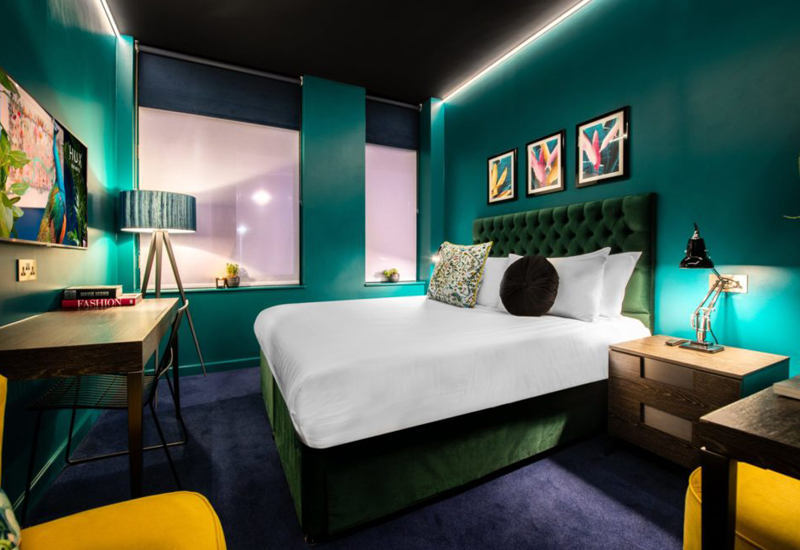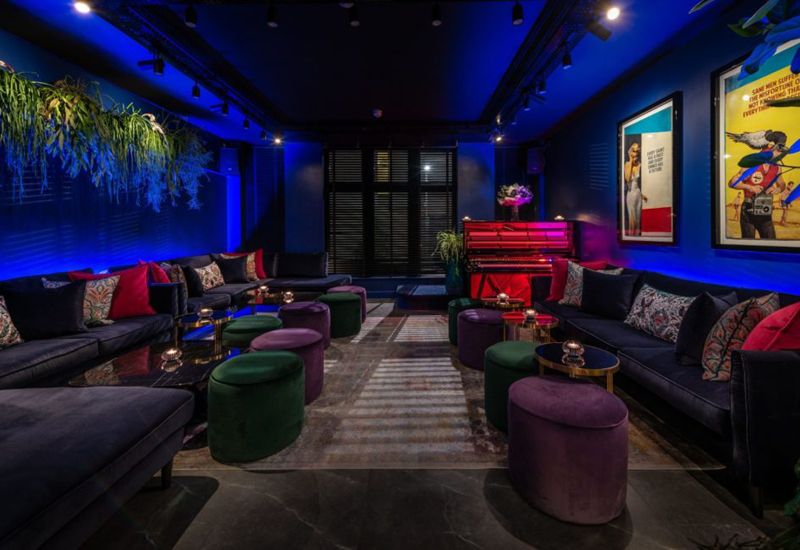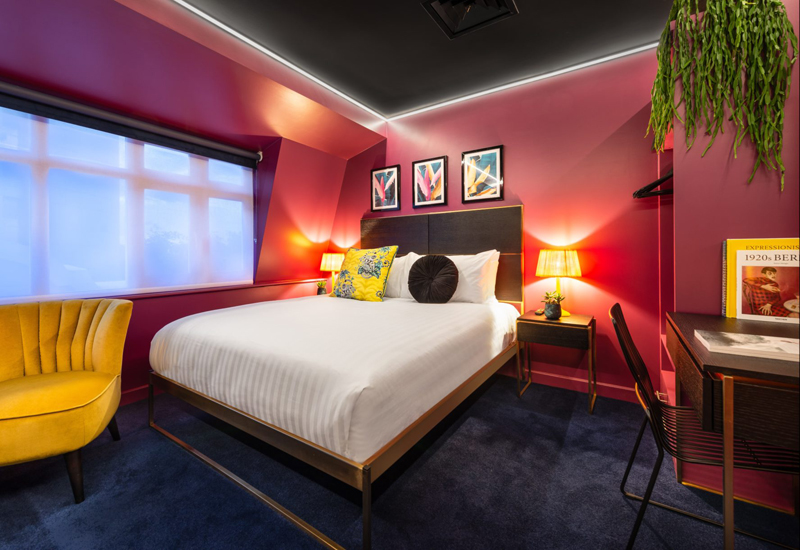
Interview: The Hux Hotel, South Kensington
Ben Patrick has surfed the crest of the Airbnb wave but he’s clear that the future lies in hotels. He tells Boutique Hotelier how his South Kensington venture, The Hux, is planning to bring a combination of ‘rabbit hole vibe’ and ‘clandestine elegance’ to the boutique hotel scene.
It was April 2019 when Ben Patrick initially viewed the building that is now home to The Hux Hotel and, like everyone else at the time, thoughts of a global pandemic would have been the last thing on his mind when thinking about the challenges that might come with launching a new hotel concept.
Even by October of that year, when the acquisition of the building was finalised, his biggest concern was just how quickly he could transform the property into a compelling boutique hotel concept worthy of its bustling location.
“It was previously a Best Western and was a little tired and needed some modernisation,” explains Patrick. “We just saw the opportunity and the location and thought we could offer something really special.”
The pandemic might have put the brakes on the speed at which it could get guests through the doors but after a significant period spent operating in a different side of the accommodation market, the added wait fortunately wasn’t too difficult to take given the unprecedented circumstances.
“Prior to this I did Airbnb and we had 66 units in London,” he says. “I think, in time, Airbnb will become regulated so we wanted to transition into something else before it did. Airbnb used to bring a lot of doom and gloom for hoteliers but it has showed a lot of operators that people, especially the younger generation, are looking for more than just a traditional stay and it’s pushing the quality and offering up amongst the hospitality industry.

“People are looking for a unique stay and something they can post on Instagram. We still have our Airbnb properties, but the idea is to move into hotels now and grow that side of things.”
And so to The Hux. One of the hotel’s main objectives, says Patrick, is simply to be “very different” – even if it splits opinion. “We knew not everyone was going to like it. We have black ceilings and bright colours so we just wanted to make an impact whether people liked it or hated it,” he says.
Fortunately, it would seem that there are plenty more in the ‘like’ camp. The hotel, which has 24 rooms, has not found it hard to attract guests. Couples eating out in the capital and taking in the sights and shopping expeditions, as well as people celebrating special occasions such as birthdays and anniversaries, have made up a strong proportion of the clientele so far.
We have black ceilings and bright colours so we just wanted to make an impact whether people liked it or hated it
“Our suites sold out first initially and the low prices meant they were in high demand but we found that people were booking them out to host parties, so that was a challenge and we had a constant battle on our hands. But we learnt from that,” he says.
“The small rooms always sell out fast. People just want a cheaper room and to come and enjoy the live music and it makes the bar of entry much lower so opens up our market more. It’s funny, though, as people will spend £70 on a room and then spend £400 in the bar. If you’re running at high occupancy levels it’s more likely this will happen, as a full and busy hotel creates a much better vibe where people want to be.”
The mechanics of pricing is a topic that Patrick clearly pays a lot of attention to. The Hux ultimately wants to get to a place where average room rates come in at between £180 and £200, but he is not fixated on getting to that figure at the expense of everything else. Room rates have been as low as £62 at one stage. They average about £100 as we speak.
“When we started out we were really busy, at like 80%, and it straight away created this really exciting atmosphere which was great for the staff. We preferred to have a busy hotel and so we reduced the price. I know a lot of hotels are looking to protect their brand and won’t sell a room for less than X amount, but they are then running at around 25% occupancy.
“I think selling our rooms at a cheaper rate gives us the opportunity to introduce a market that otherwise may never have come – perhaps a crowd that is looking for sub-£100. It’s a dynamic model at the moment. We want to be a destination and for people to get a great experience with the live music and bar, and the design, rather than somewhere they can sleep for the night.”

One of the next priorities on Patrick’s list is to expand the hotel’s downstairs F&B space. He is poring over planning applications at the moment, but hopes to complete the project within 12 months. That will give it an additional 400 square metres, making the bar twice the size than it is now.
“At the moment, we have a small sushi menu and do breakfast in the morning, but when we get a bigger kitchen we will be able to cater more for dinners. We’ll also be adding another 17 rooms as well,” he says.
Things sound like they are going in the right direction and, having expanded his Airbnb empire over the years, the idea of rolling out the hotel brand to further sites across the country must be a prospect that Patrick is excited by?
“We want to be maxed out here before we look to move on to another site,” he replies. “We would look to get to around 70 rooms here, and there is so much opportunity for growth here first. Perhaps we would look for a bigger building to allow us to create more room types and interesting features in a period building. We wouldn’t look to go into other cities currently, but perhaps that appetite will change once we become more experienced.”
You certainly wouldn’t bet against it.